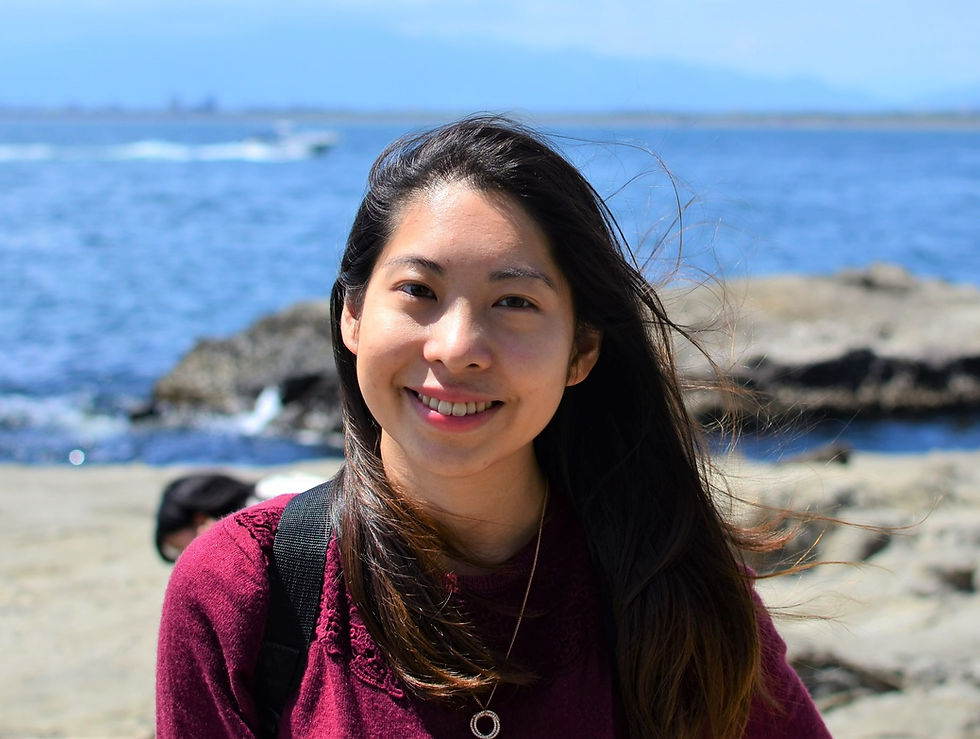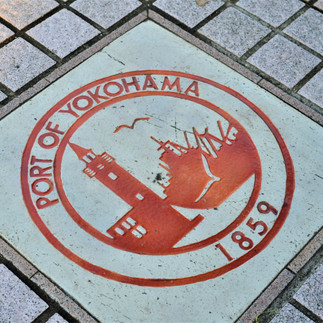Sophia Chow - Fujisawa, Kanagawa (2015-2017)
- Japan Society of Boston

- Jun 18, 2021
- 3 min read
Updated: Jul 14, 2021

Where were you in Japan as a JET and when?
I was a prefectural ALT based in Fujisawa-shi, Kanagawa-ken, 2015 - 2017.
What sparked your interest in applying for the JET program?
Oh, so many reasons, but I think my main motivation to apply was the feeling I had right after I did a brief 6-week study abroad at Sophia University in Tokyo. It went by so quickly, and I lamented the fact that I had to leave so soon after I had just settled in. There was still so much of the country that I wanted to experience and explore. I also wanted to improve my Japanese more. I had heard about the JET Program from my university's Asian studies advisor who was a JET alum herself, and since I had always wanted to live and work abroad, it seemed like the perfect fit for me. I applied during my senior year and was luckily accepted as an ALT.
What are some of the things your prefecture is known for? Ex. food, hotspots, etc.
Kanagawa has a lot of great sightseeing spots -- you name it, we've got it. If you're looking for somewhere urban with good shopping, entertainment, and international cuisine, there's Yokohama and Minato Mirai. Missing the ocean? You can visit the Shonan beaches and Enoshima (featured in a lot of anime, movies, and the reality TV show Terrace House). Kamakura is known for historical temples, retro cafes, and an off-the-beaten-path bamboo forest. To the west, there is also the popular hot spring resort town of Hakone which has great views of Mt. Fuji on clear days.
Food-wise, Kanagawa is by the ocean, so whitebait rice bowls, or shirasu-don, is a local specialty, along with octopus crackers, or tako senbei. The Miura peninsula on the southeast coast of Kanagawa is famous for fresh tuna and daikon radish. The port town of Yokosuka is known for its naval curry, or kaigun kare, which is often served, interestingly, with a glass of milk.
Did you pick up any of the regional dialects? What are some of your favorite words or phrases?
Since Kanagawa is in the Kanto region and is right next to Tokyo, almost everyone speaks standard Japanese. Instead, I enjoyed learning trendy slang from my high school students, such as "sore na!", which is like the English "This!" when you agree with something someone said. I also learned about cheeky word inversions said for fun, e.g. "pai-sen" (senpai) or "shi-su" (sushi). "Ukeru!" is an interjection meaning something is funny/hilarious and "bimyou" can be said when something is kinda meh/iffy/questionable.
If you were to return to live in Japan, would you choose to live in that same prefecture?
Absolutely, I loved living there. Since it's right next to Tokyo and easy to commute there for work, most of the prefecture is comprised of suburban communities and is popular with young professionals and families. I would often take the train up to Tokyo on the weekends if I wanted to check out local events, or sightsee by the ocean in Enoshima and Kamakura. However, I'd also like to try living in more rural prefectures in Tohoku or around the Seto Inland Sea, which I felt were really beautiful and underrated parts of the country.
How has your connection in relation to Japan changed since living in Japan?
I never would have thought that a casual decision to study Japanese in college would have led to the experiences I've had. I've been grateful to be able to maintain a strong connection to Japan even after returning to the States, despite no longer working in a field related to Japan/education. My friends and colleagues from my time in Kanagawa are very dear to me, and I still speak with many of them on a regular basis. Being part of the JET alumni community has been invaluable as both a source of support and an opportunity to engage with new prospective JETs. With the current pandemic, it's difficult to know when I can visit Japan again (hopefully soon!), but the increase in virtual events from Japan-related organizations during this time has been a wonderful way to allow me to reminisce and keep up my Japanese.
This interview is part of a partnership between the Japan Society Boston (JSB) and the United States Japan Exchange & Teaching Programme Alumni Association (USJETAA) in which JET alumni contribute short interviews about their experiences in Japan in each prefecture.
Visit the main JSB website: https://www.japansocietyboston.org/
Check out JSB's "My Japan Journey" Podcast: https://japansocietyboston.wixsite.com/ourjapanjourneys



















